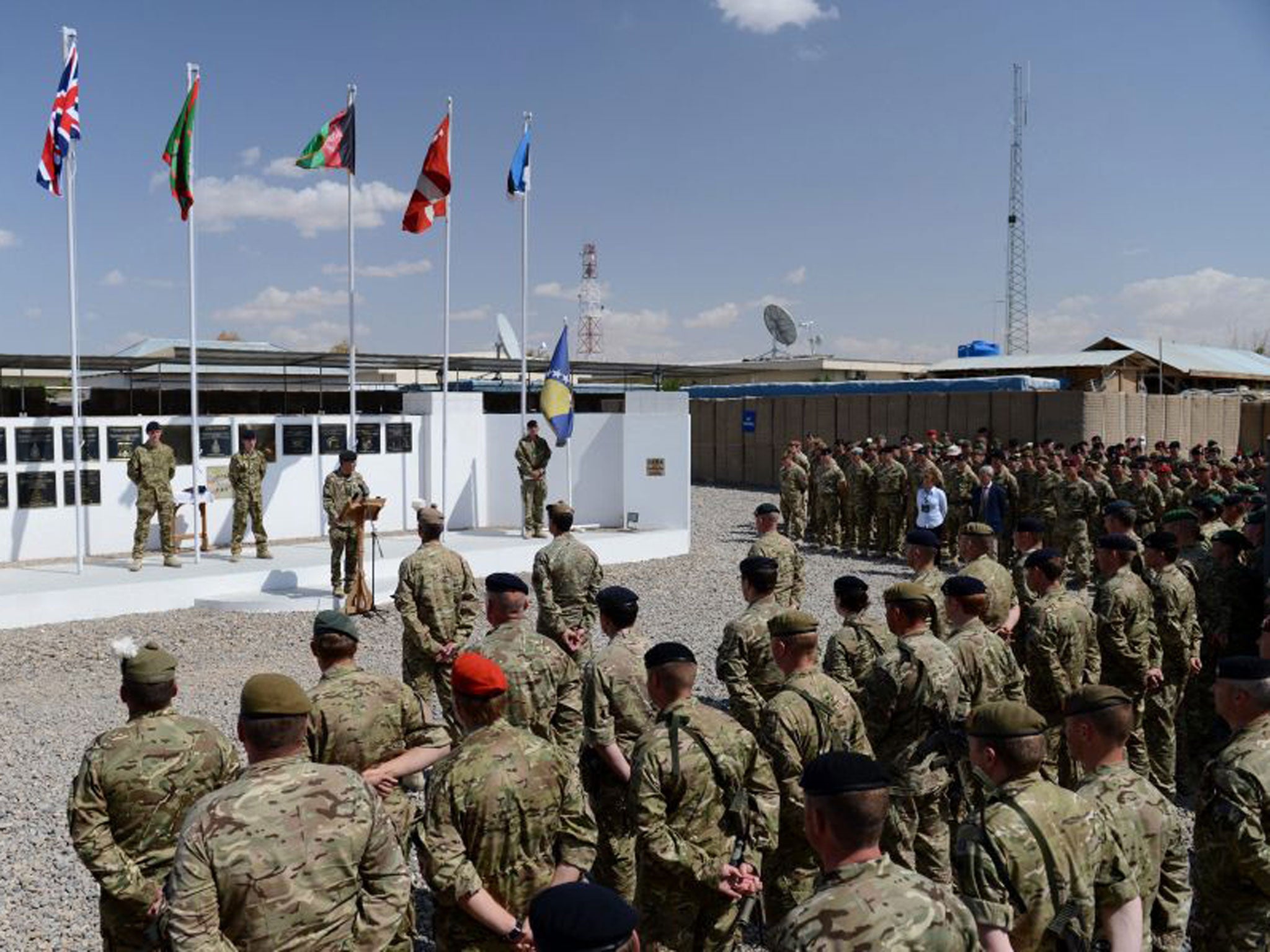The fact that public opinion is against further wars of choice has not gone unnoticed by the military
The Ministry of Defence is taking care to rebrand its image


Even as our government prepares for a multi-million pound rebranding of the First World War next year, ideas are being spun at the Ministry of Defence to mitigate opposition to current and future conflicts, a 2012 report has revealed.
Far from an institution which is divorced from politics, the report paints a picture of a military which is desperate to shape public opinion. Although the report’s suggestions have not yet been enacted as policy, the fact that these questions are being asked at all tells us something of interest.
Lowering the visibility of the repatriation ceremonies of dead soldiers is one concern, as is the possibility of increasing the use of unaccountable hired guns, the increased and secret deployment of Special Forces and using Britain’s recently expanded drone fleet to its fullest extent.
There is a clear sense that in future the MoD is hoping foreign adventures will be easier to flog to a British public which has proven increasingly resistant to the wholesale bombing of dusty countries.
The fact that opinion is against further wars of choice, most recently evidenced by the failed vote on Syria, during which some of our most committed hawks wobbled, has not gone unnoticed by the military.
The report seems to recognize that getting a disgruntled electorate to invest in future operations, and to believe wars are prosecuted for the benefit of the population at large, will be critical to Britain’s ability to shore up her wavering imperial credentials. The report is surprisingly frank about this, going as far as to argue that “…once the public are convinced that they have a stake in the conflict they are prepared to endorse military risks and will accept casualties…”
Comparisons are also made between public willingness to support military operations in the Falklands and Northern Ireland and the more recent conflicts of the post 9/11 era. It is true that while these earlier conflicts were primarily colonial in nature, they were a much easier sell than Iraq or Afghanistan in terms of their perceived relevance to UK security interests and prestige. How the same effect could be achieved for future Middle East conflicts remains to be seen.
Reducing the public’s awareness of the returning bodies of dead soldiers is another suggested tactic though to some extent this has already been achieved as in the case of switching the repatriations from RAF Lyneham, close to the town of Wootton Bassett which for several years was the scene of large public outpourings of grief, to RAF Brize Norton.
Mercenaries would also play an increased role in future operations given that they are looked upon less favourably and with much less concern than serving military personnel. Though the increased use of private military contractors must inevitably lead to concerns about the outsourcing of warfare.
The issue of the accountability of these latter-day sell-swords became a serious grievance during the occupation of Iraq and their conduct may have played a role in turning the population against the coalition presence there.
There is also some evidence that the killings of several mercenaries from the US security company known at the time Blackwater may have served as the catalyst for the assault on (and eventual irradiation of) the Iraqi city of Fallujah by US and British forces.
In short, the idea of using disposable mercenaries may appeal to the MoD, but their use brings with it a whole new set of risks and variables which have been proven to diminish rather than increase the chances of a meaningful victory, even in the narrow imperial sense.
The UK drone fleet, which recently became operational, is also likely to take on an expanded role if the findings become policy. The reason for this is the perception that fewer casualties are involved and drones are thus politically preferable. In a parochial sense this may be true, there are less casualties… for us.
The fact remains that unmanned aerial vehicles are a major grievance in the countries where they operate and serve to alienate and radicalize survivors and relatives of those killed in missile strikes. Their use reflects the kind of bloody and ill thought out military short-termism which is likely to haunt us again much as it did in the case of the Woolwich attack this past summer.
Finally, the report also contains a slightly cryptic reference to the increased sophistication of"‘opponents’"of the wars. My personal belief is that this should be taken as a nod to the effectiveness of anti-war activism over the years and that view is supported by a leaked MoD diktat known as Joint Services Protocol (JSP) 440 which, in essence, redefines journalists, activists and disgruntled ex-employees as a security concern akin to that posed foreign agents and terrorists.
Join our commenting forum
Join thought-provoking conversations, follow other Independent readers and see their replies
Comments
Bookmark popover
Removed from bookmarks